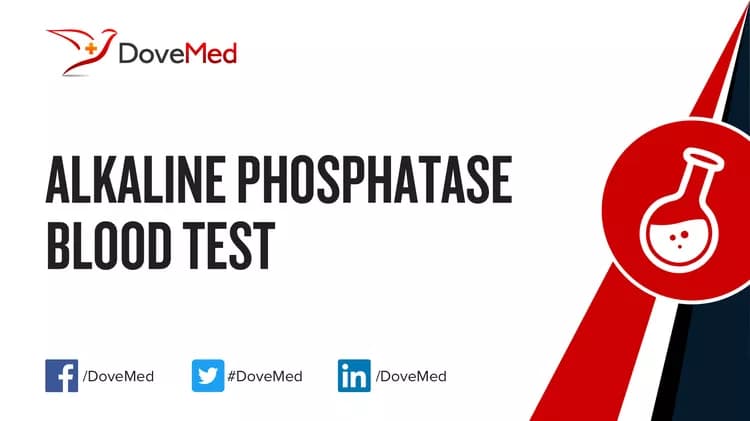What are the other Names for this Test? (Equivalent Terms)
- Alk Phos Blood Test
- Alkp Blood Test
- ALP (Alkaline Phosphatase) Blood Test
What is Alkaline Phosphatase Blood Test? (Background Information)
- Alkaline phosphatase (ALP) is an enzyme that is found mainly in the liver and bones. Kidney, intestines, and the placenta, contain some ALP as well
- In the liver, the cells lining the bile duct (channels carrying bile from liver to the intestine) contain ALP; while, the enzyme in the bone, is present in bone-forming cells, called osteoblasts. Consequently, any damage to the bile duct, or disorders of the bone associated with excessive osteoblast activity, can lead to increased ALP levels in blood
- Alkaline Phosphatase Blood Test helps in assessing individuals, who may have liver or bone disorders
- An associated liver panel or GGT (gamma glutamyl transpeptidase) levels, or testing for levels of calcium and phosphorus, can help differentiate between liver and bone conditions, when ALP levels are increased
- An Alkaline Phosphatase Isoenzyme Test can also help distinguish, between the ALP present in liver and that present in bone
What are the Clinical Indications for performing the Alkaline Phosphatase Blood Test?
Indications for Alkaline Phosphatase Blood Tests include:
Symptoms and signs of liver disease, such as:
- Abdominal pain, abdominal swelling
- Nausea, vomiting
- Jaundice
- Dark-colored urine
- Pale stools
- Itching
- Easy bruising
Symptoms and signs of a bone disorder, such as:
- Pain
- Deformity or frequent fractures.
How is the Specimen Collected for Alkaline Phosphatase Blood Test?
Sample required: Blood
Process: Blood sample is drawn through a needle inserted into the vein (arm).
Preparation required: None. In some individuals, ALP levels may be elevated for a few hours following a meal. Hence, an overnight fasting is usually preferred, although it is not considered mandatory.
What is the Significance of the Alkaline Phosphatase Blood Test Result?
The normal blood levels of alkaline phosphatase, called the reference range for ALP, may vary slightly from lab to lab. Hence, most lab reports come with a reference range, which is used in that particular centre. A physician interprets the results based on the reference values provided.
A standard reference range in wide use is 44-147 IU/L (international units per liter).
ALP levels may be increased in:
- Obstruction of the bile duct (due to gall stones, cancer, or other causes)
- Liver conditions, such as cancer, cirrhosis, or hepatitis (to a lesser extent)
- Paget’s disease - characterized by abnormal breakdown and regrowth of weaker bones, leading to pain and fractures
- Osteoblastic (bone-forming) bone tumors
- Metastatic bone tumors - cancers that have spread to the bone from other areas
- Hyperparathyroidism - overactive parathyroid gland
- Rickets, due to vitamin D deficiency
- Conditions, such as ulcerative colitis (an autoimmune disease characterized by inflammation of the large bowel), lymphoma (a type of blood cancer involving lymphocytes), heart failure, and some bacterial infections
ALP levels may be decreased in:
- Hypophosphatasia - a genetic disorder with abnormal bone metabolism
- Wilson’s disease - a genetic disorder characterized by copper accumulation in the body
- Zinc/protein deficiency
The laboratory test results are NOT to be interpreted as results of a "stand-alone" test. The test results have to be interpreted after correlating with suitable clinical findings and additional supplemental tests/information. Your healthcare providers will explain the meaning of your tests results, based on the overall clinical scenario.
Additional and Relevant Useful Information:
- Alkaline phosphatase levels are usually higher in children and adolescents, due to an increased bone growth in that age group
- Pregnancy and healing fractures temporarily elevate ALP levels
- Drugs, like oral contraceptive pills, may lower ALP, while anti-epileptics may raise ALP levels
Certain medications that you may be currently taking may influence the outcome of the test. Hence, it is important to inform your healthcare provider, the complete list of medications (including any herbal supplements) you are currently taking. This will help the healthcare provider interpret your test results more accurately and avoid unnecessary chances of a misdiagnosis.
Related Articles
Test Your Knowledge
Asked by users
Related Centers
Related Specialties
Related Physicians
Related Procedures
Related Resources
Join DoveHubs
and connect with fellow professionals


0 Comments
Please log in to post a comment.